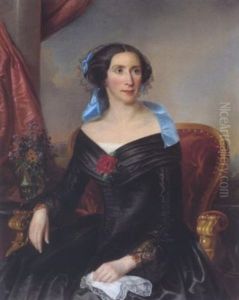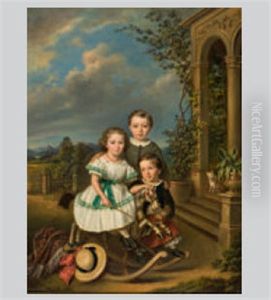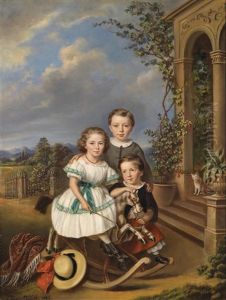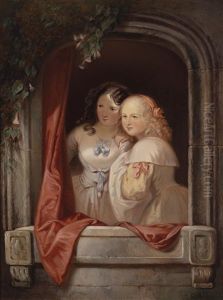Elisabeth Modell Paintings
Elisabeth Modell was a German-born American photographer known for her intimate and compassionate portraiture. Born in Frankfurt, Germany, in 1917, Modell fled Nazi Germany, arriving in the United States in 1938. Her early experiences, including the rise of fascism and the impact of World War II, influenced her perspective and work significantly. Modell's photography often reflected her interest in social issues and her commitment to capturing the humanity of her subjects.
After settling in the U.S., Modell pursued her passion for photography. She studied at the New School for Social Research in New York City under the tutelage of Berenice Abbott, a prominent American photographer known for her portraits and urban photography. Modell's work is characterized by its simplicity and depth, focusing on the everyday lives of ordinary people, including immigrants, the elderly, and children. She was committed to using her camera to document and understand the human condition.
Throughout her career, Modell exhibited her work in a number of galleries and museums. Her photography gained recognition for its empathetic portrayal of her subjects, earning her a reputation as a photographer with a keen eye for the subtleties of human expression and interaction. Modell's contributions to the field of photography were significant, and her legacy is that of an artist deeply connected to her subjects, striving to capture their essence and tell their stories through her lens.
Elisabeth Modell passed away in 2008, leaving behind a body of work that continues to resonate with viewers for its emotional depth and its sensitive, humanistic approach to portraiture. Her photographs are included in various collections and continue to be studied and admired for their artistry and compassion.

















